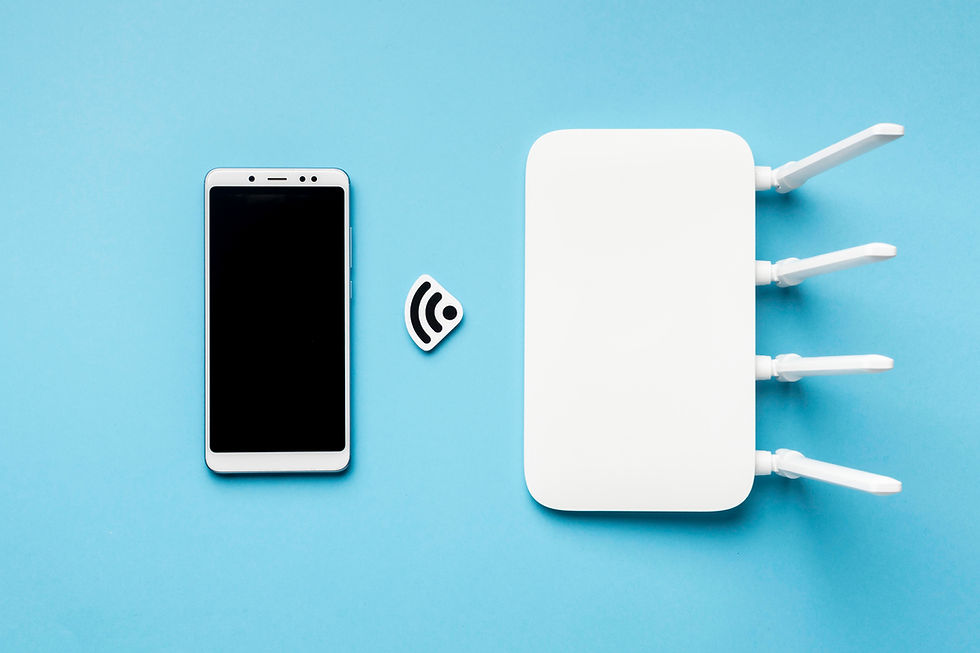Do I need a central hub to operate my smart home devices?
- Chahat Surana
- May 29, 2024
- 3 min read
Updated: Jul 21, 2024

Hello, tech enthusiasts! As we delve into the world of home automation, a common question you might have is: "Do I need a central hub to operate my smart home devices?"
Today, we'll explore what a smart home hub is, its benefits, and whether you really need one to enjoy a seamless smart home experience. Let's get started!
What Is a Smart Home Hub?
A smart home hub acts as the central command center for your smart home devices. It connects and coordinates various devices, enabling them to communicate with each other and work together harmoniously. Hubs often support multiple smart home protocols, such as Zigbee, Z-Wave, Wi-Fi, and Bluetooth, allowing you to control a diverse array of gadgets from a single interface, whether it's an app or a voice assistant.
Benefits of a Smart Home Hub
Unified Control: One of the primary benefits of a hub is that it allows you to control all your smart devices from a single app or interface. This unified control can simplify your life, eliminating the need to juggle multiple apps for different devices.
Enhanced Automation: Hubs enable more complex automation scenarios. For instance, you can create routines that trigger multiple devices simultaneously—such as turning off the lights, locking the doors, and setting the thermostat when you say "Goodnight" to your voice assistant.
Improved Connectivity: A hub can help bridge compatibility gaps between devices that use different communication protocols. This ensures that your Zigbee light bulbs can communicate with your Wi-Fi thermostat and your Z-Wave door locks.
Better Performance: By offloading some of the processing to a dedicated hub, you can reduce the load on your home Wi-Fi network. This can improve the performance and reliability of your smart home system, especially if you have many devices.
Do You Need a Central Hub?
The necessity of a central hub largely depends on your specific needs and the devices you plan to use. Here are some scenarios to consider:
Basic Setup: If you’re just starting out with a few smart devices like smart plugs, bulbs, and a voice assistant, you might not need a hub. Many modern devices can connect directly to your home Wi-Fi and be controlled via their respective apps or a smart speaker.
Intermediate Setup: As you add more devices, especially those using different communication protocols (like Zigbee or Z-Wave), a hub can be beneficial. It simplifies management and enhances automation capabilities.
Advanced Setup: For a fully integrated smart home with dozens of devices, a hub becomes almost essential. It ensures seamless operation and allows you to take full advantage of complex automations and routines.
What are Hubless Alternatives?
In recent years, many smart home ecosystems have evolved to reduce the need for a central hub. Platforms like Amazon Alexa, Google Home, and Apple HomeKit offer robust app-based controls and can act as a pseudo-hub, integrating multiple devices and allowing for basic automation and voice control.
Conclusion
While a central hub can greatly enhance the functionality and ease of managing your smart home, it isn't always necessary, especially for simpler setups. As your smart home ecosystem grows and becomes more complex, a hub can provide the unified control and advanced automation you need to make the most of your smart devices.
Here at Hrita Solutions, we're committed to helping you find the best solutions for your smart home needs. Whether you choose to go hubless or integrate a central hub, our range of products and expert advice are here to guide you every step of the way. Get in touch with us today to explore your options and create the smart home of your dreams!
Also read:






Comments